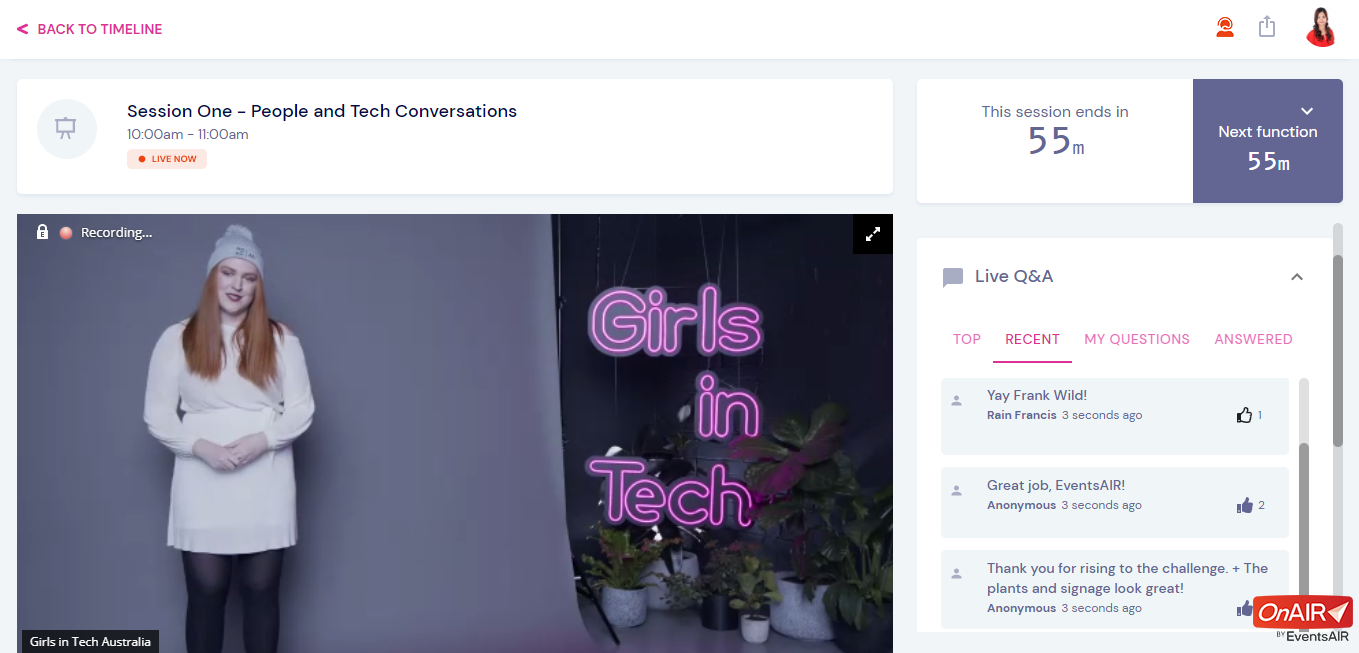Guest Post: How to Successfully Organize Virtual Events

Organizing a virtual event requires the utmost care and attention. You are tasked with promoting the event, engaging participants, creating memorable moments for everyone present, and eventually proving that the event was a total success. A successful virtual event incorporates the elements that participants look for during live events, including networking opportunities. However, coordinating and planning a virtual event is an engagement-driven, value-adding experience. If you approach your organization and planning with these benefits in mind, you can transform your virtual event into an impactful venture that extends beyond the computer screen. In this article, we’re going to provide a few tips for organizing successful and memorable virtual events.
The Digital Alternative
This boom is no surprise considering that most businesses have been forced to temporarily close their doors and seek business pivots to maintain cash flow and brand awareness. For those new to planning virtual events, and those who are experienced, the benefits are plentiful. Online events offer flexibility for your business in that you can create a virtual event suitable to your exact resources be they big or small. There is a cost saving from not having to hire venues and caterers and virtual events have highly engaged audiences.
For any organization considering or planning a virtual event a vital aspect of consideration is the experience that is being offered to the audience. Not all aspects of physical events will translate well for a virtual one. Get it wrong and you could damage brand sentiment. Consider the following when planning your next virtual event.

Adapt To Digital First Thinking
The experience that your audience expects from your virtual event, is one that runs smoothly, looks and sounds great, and is an appropriate use of their time. They want to come away from it feeling pumped and enlightened as they do your physical events. To deliver that experience digitally you must adapt to digital first thinking:
Consider all the aspects of your physical events and how they can adapt to your virtual one. It is better to leave out what doesn’t adapt than to try and make it something it is not. Who hosts and speaks at your event is an example of something you might need to adapt. “Before you book your speakers, ask them for an example of other virtual events they have done. I have attended events where the speaker was great at engaging a huge audience in purpose built arenas but then have seen them online and they just don’t have the same spark,” says, Daniella Getty, a project manager at Academic brits and Next coursework.
The EventsAir experience was very gratifying. It was rewarding to see all our hard work and intense effort, over a short time frame, pay off with a result that was equal to or even exceeded our face-to-face event.
Ines Borovic – University of Sydney. Read full case study.

Engage Your Audience
A big benefit of virtual events is the engagement possibilities. Attendees who would normally sit quietly and refrain from asking questions are more likely to quickly type in their question or feedback using a virtual booth or chat function. Different platforms offer different engagement options. With some, you can run live polls and pop quizzes whilst others have the functionality to allow slide downloads.

Entertain Your Attendees
A common misconception of virtual events is that they have to be a paired down simple set up. The truth is that they can be just as entertaining and diverse as any event. Take a look at how the entertainment industry has responded to the Covid 19 quarantine restrictions for inspiration. Jimmy Kimmel is producing show worthy content from his home and car, 100 singers came together for the One World: Together At Home Concert, and chat shows are hosting guests via video calls. If they can do it, so can you. “The best virtual events have something extra to offer,” says Steve Ronan, a business writer at Origin writings and Phd kingdom.
“Be that an entertainment segment, a video message from a sports star, a giveaway, or even a good emcee to keep things moving and lively.”
Steve Ronan
Try not to be put off by your limited knowledge when planning a virtual event. The sky’s the limit when it comes to planning your event, think big and then look into the practicalities.
Conclusion
When it comes to deciding if virtual events will work for your business and your audience. Start by weighing up the pros and cons. Think about the audience benefits such as the flexibility of attending from wherever they happen to be – not everyone can travel easily to a physical event. Also the ability for global attendees to join the event – maybe an opportunity for business growth. Know in advance what you hope to gain from the event and how you will measure that. Overall, plan, research and have fun.
Author: Beatrice Beard
EventsAir has been at the forefront of Event Technology and Innovation for over 30 years, continually pushing the boundaries of what an event management platform can do. Built by event planners for event planners, EventsAir is a secure, scalable, cloud-based solution that can manage everything from virtual, hybrid to live conferences, meetings and events in a single online platform – anywhere, anytime and on any device. In use in over 50 countries by multi-national corporations, professional conference organizers, government departments and tertiary education institutions, EventsAir is also used in global congresses such as G20, APEC, CHOGM and ASEAN, as well as sporting events like The Olympic Games, World Rugby, Commonwealth Games and Pan Am Games. EventsAir is trusted by event professionals around the globe. For further information, visit https://www.eventsair.com/



